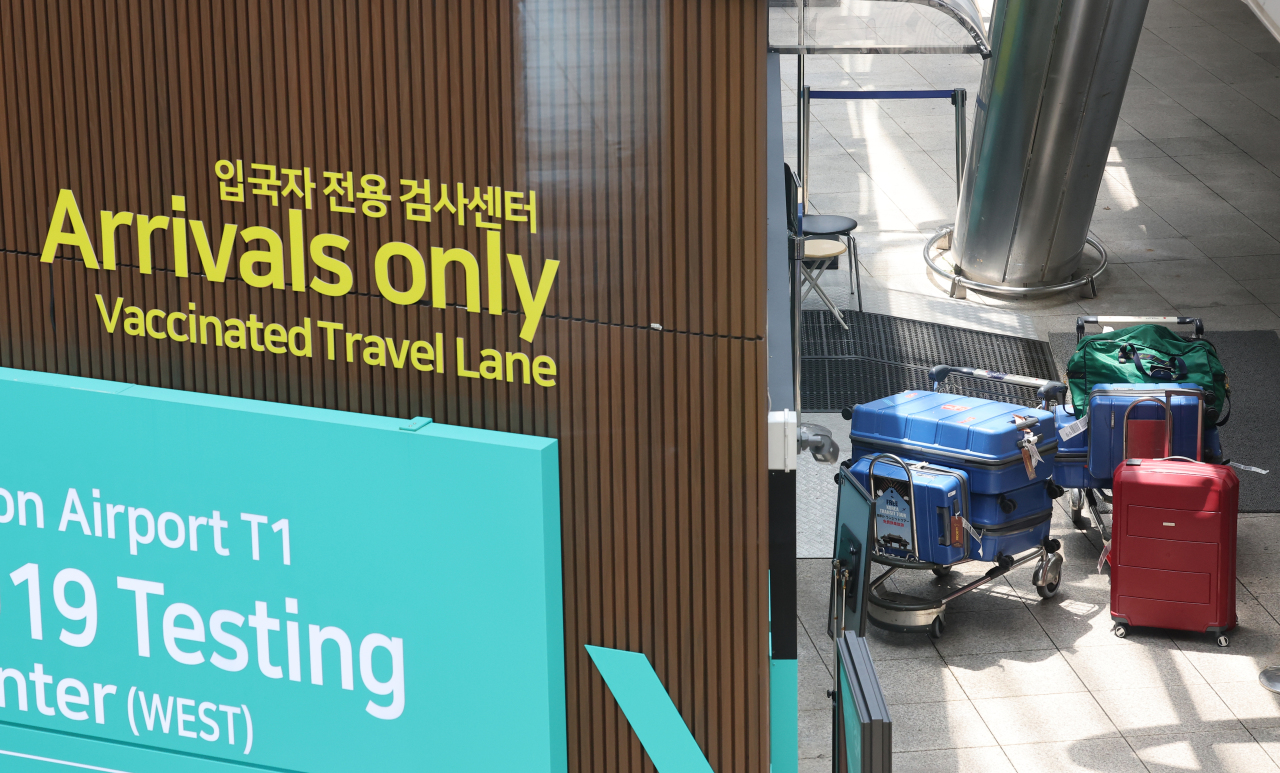 |
Luggages are placed outside the COVID-19 testing center at the Incheon International Airport in this photo taken Wednesday. (Yonhap) |
The BA.5 version of omicron is on course to take over as the dominant COVID-19 virus in South Korea, with the number of cases tied to the variant having tripled over course of a week, data showed Wednesday.
The BA.5 variant appeared in 24.1 percent of sequenced samples in the last week of June, more than triple the prior week’s 7.5 percent, according to the Korea Disease Control and Prevention Agency’s weekly report updated Tuesday.
On the other hand the BA.2.3, which remains the most commonly reported virus, made up 39.5 percent, down from 51.1 percent seen a week prior. Over the same week, the share of BA.2 decreased from 32.7 percent to 24.2 percent.
Starting in mid-March, BA.2 had been the dominant variant in South Korea, until BA.2.3 started making up more than half of sequenced cases in June.
Lim Sook-young, a senior KDCA official, told a news briefing Tuesday that the weekly growth rate of BA.5 suggested its “imminent dominance” here.
Citing the UK data, Lim said BA.5 was reported to spread about 35 percent more quickly than BA.2. BA.5 was also more likely to dodge immunity, with its ability to neutralize the virus weakened compared to BA.2, she said.
BA’s rise to dominance comes about two months after South Korea detected its first two BA.5 cases on May 17, one of whom was a traveler from Turkey and another a resident of Incheon.
The World Health Organization classifies BA.5 as well as other subvariants of omicron as variants of concern -- a classification that is made when a variant is associated with a global health risk either due to an increase in transmissibility or virulence, among other criteria.
Over the past week, South Korea logged 10,676 cases per day on average, marking a jump of 7,147 cases from the week before.
In the face of a possible resurgence in infections, the Ministry of Health and Welfare said in a press release Wednesday that plans were underway to add hospital beds for pregnant women, children and others who are at a higher risk from COVID-19.
“I think the biggest risk facing us might be that COVID-19 does not seem to be a priority in the current administration,” said Dr. Eom Joong-sik, an infectious disease specialist at Gachon University Medical Center in Incheon.
Nearly two months since Yoon Suk-yeol was inaugurated, he has yet to appoint a Minister of Health and Welfare -- a key post amid the pandemic. His last two nominees dropped out following corruption and other allegations.
By Kim Arin (
arin@heraldcorp.com)




![[Herald Interview] 'Trump will use tariffs as first line of defense for American manufacturing'](http://res.heraldm.com/phpwas/restmb_idxmake.php?idx=644&simg=/content/image/2024/11/26/20241126050017_0.jpg)

![[Health and care] Getting cancer young: Why cancer isn’t just an older person’s battle](http://res.heraldm.com/phpwas/restmb_idxmake.php?idx=644&simg=/content/image/2024/11/26/20241126050043_0.jpg)

![[Graphic News] International marriages on rise in Korea](http://res.heraldm.com/phpwas/restmb_idxmake.php?idx=644&simg=/content/image/2024/11/25/20241125050091_0.gif)